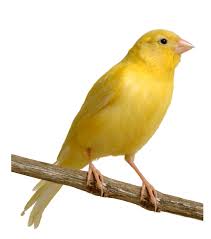记忆方法
将“canary”记忆为“can”与“ry”组合。想象一个“can”装满了黄色的“ry”(如“dry”或“nary”),暗示这个装满的“can”其实是装着金黄金黄的“canary”(金丝雀)。通过这个图像,可以更容易地记住“canary”这个单词。
以上内容由AI生成, 仅供参考和借鉴
中文词源
canary 金丝雀
来自拉丁词Insula Canaria, 狗岛(大西洋岛屿),词源同cynic,canine。因在该岛上首次发现而得名。
英语词源
- canary
-
canary: [16] Small green finches (Serinus canarius) native to the Canary Islands were introduced as cage birds in England in the 16th century (the domestic breed is now for the most part yellow). They were called, naturally enough, canary birds, and by the mid 17th century this had become simply canary. The Canaries, a group of Spanish islands in the Atlantic off the northwest coast of Africa, got their name because one of them was famous in Roman times for a large breed of dog found there (Latin canārius ‘of dogs’ was a derivative of canís, source of English canine, chenille, and kennel and related to English hound).
=> canine, chenille, hound, kennel - canary (n.)
- type of small songbird, 1650s (short for Canary-bird, 1570s), from French canarie, from Spanish canario "canary bird," literally "of the Canary Islands," from Latin Insula Canaria "Canary Island," largest of the Fortunate Isles, literally "island of dogs" (canis, genitive canarius; see canine (n.)), so called because large dogs lived there. The name was extended to the whole island group (Canariæ Insulæ) by the time of Arnobius (c.300). As a type of wine (from the Canary Islands) from 1580s.
权威例句
- 1. His body was found at sea in waters off the Canary Islands.
- 他的尸体在离加那利群岛不远的海上被发现。
- 2. My canary has laid an egg.
- 我的金丝雀生了一个蛋。
- 3. The canary has escaped from the cage.
- 那只金丝雀已从笼子里跑掉了.
- 4. Canary Wharf was set to provide 10 million square feet of office space.
- 金丝雀码头计划要提供1,000万平方英尺的办公面积。
- 5. He said he would try to write or call as soon as he reached the Canary Islands.
- 他说他一到加那利群岛就会设法写信或者打电话来。
